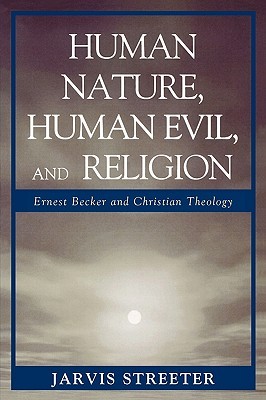
- We will send in 10–14 business days.
- Author: Jarvis Streeter
- Publisher: University Press of America
- ISBN-10: 0761843574
- ISBN-13: 9780761843573
- Format: 15 x 22.4 x 1.8 cm, softcover
- Language: English
- SAVE -10% with code: EXTRA
Reviews
Description
In this book, Jarvis Streeter details Ernest Becker's anthropological theories and compares them with traditional and contemporary Christian thought on human nature, sin, and salvation in order to see how the two approaches compare and where Becker might have insights to offer contemporary Christian thinkers. Ernest Becker was a pioneer in the interdisciplinary study of human nature and motivation, drawing from the fields of evolutionary biology, psychology, psychiatry, cultural anthropology, sociology, philosophy and religion to create what he termed a Science of Man. His goal was to understand the most basic human motives, particularly those that led to evil behavior in order to ameliorate them and create a more humane world. He concluded, following the thought of Alfred Adler, Otto Rank and philosophical and religious existentialism, that the related urges to avoid death anxiety, gain self-esteem and symbolically deny death were the key human motives-ones which were also responsible for human evil-and that religion has had a complex role to play for both good and ill in human history.
EXTRA 10 % discount with code: EXTRA
The promotion ends in 18d.07:57:42
The discount code is valid when purchasing from 10 €. Discounts do not stack.
- Author: Jarvis Streeter
- Publisher: University Press of America
- ISBN-10: 0761843574
- ISBN-13: 9780761843573
- Format: 15 x 22.4 x 1.8 cm, softcover
- Language: English English
In this book, Jarvis Streeter details Ernest Becker's anthropological theories and compares them with traditional and contemporary Christian thought on human nature, sin, and salvation in order to see how the two approaches compare and where Becker might have insights to offer contemporary Christian thinkers. Ernest Becker was a pioneer in the interdisciplinary study of human nature and motivation, drawing from the fields of evolutionary biology, psychology, psychiatry, cultural anthropology, sociology, philosophy and religion to create what he termed a Science of Man. His goal was to understand the most basic human motives, particularly those that led to evil behavior in order to ameliorate them and create a more humane world. He concluded, following the thought of Alfred Adler, Otto Rank and philosophical and religious existentialism, that the related urges to avoid death anxiety, gain self-esteem and symbolically deny death were the key human motives-ones which were also responsible for human evil-and that religion has had a complex role to play for both good and ill in human history.


Reviews